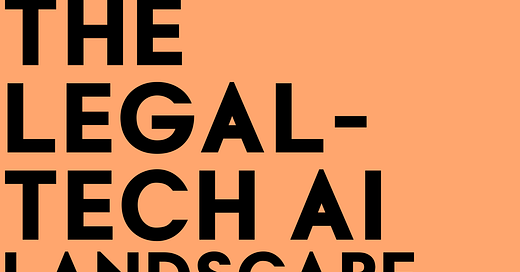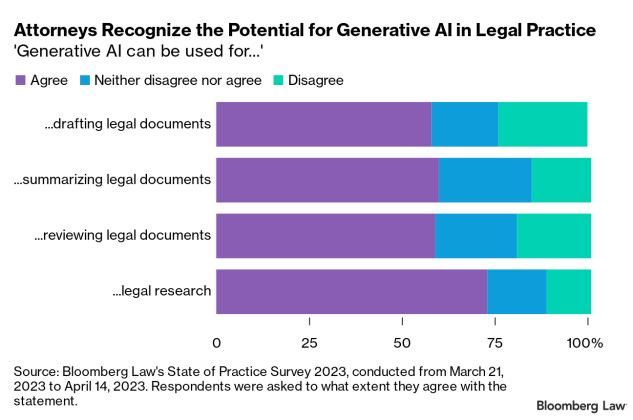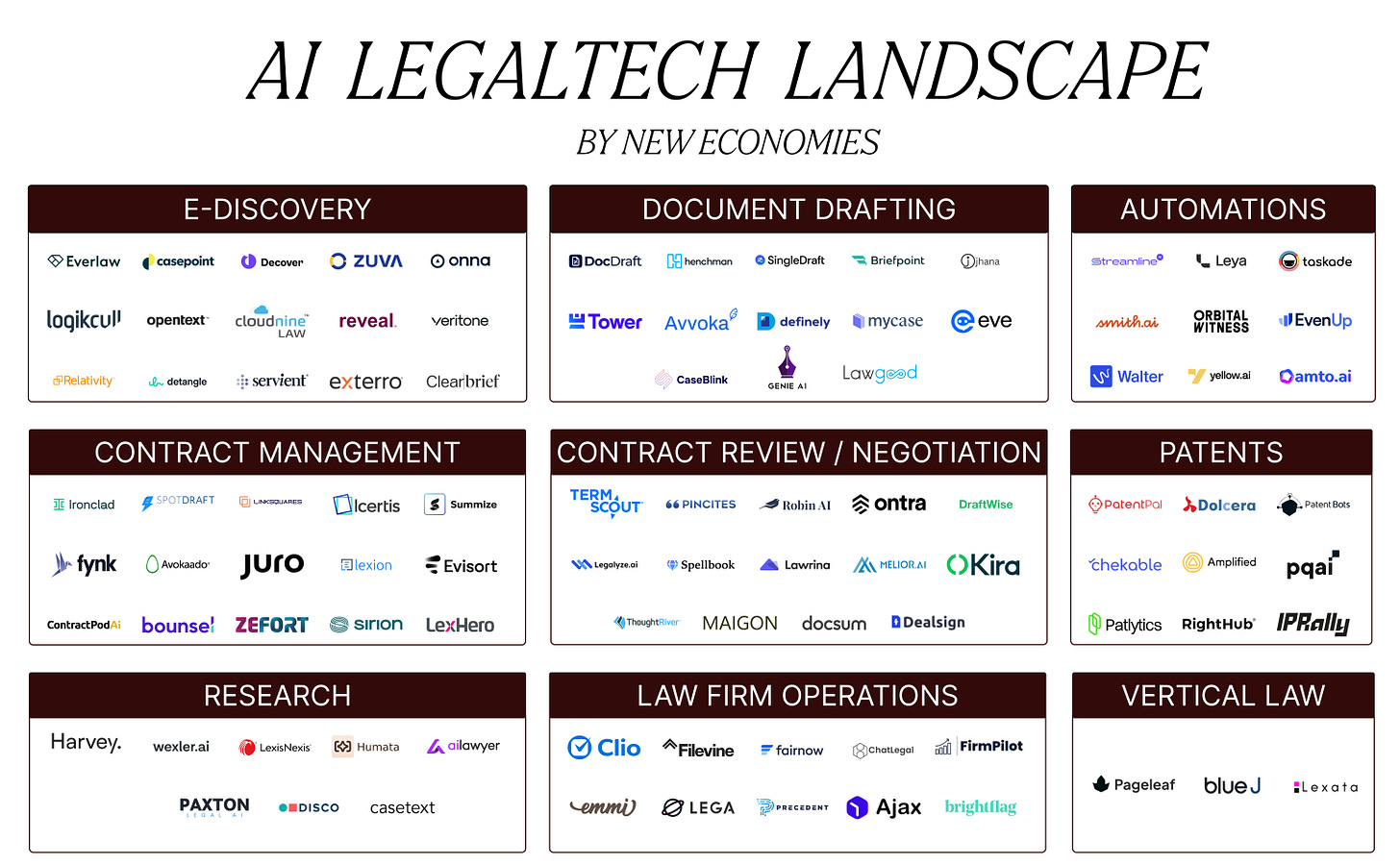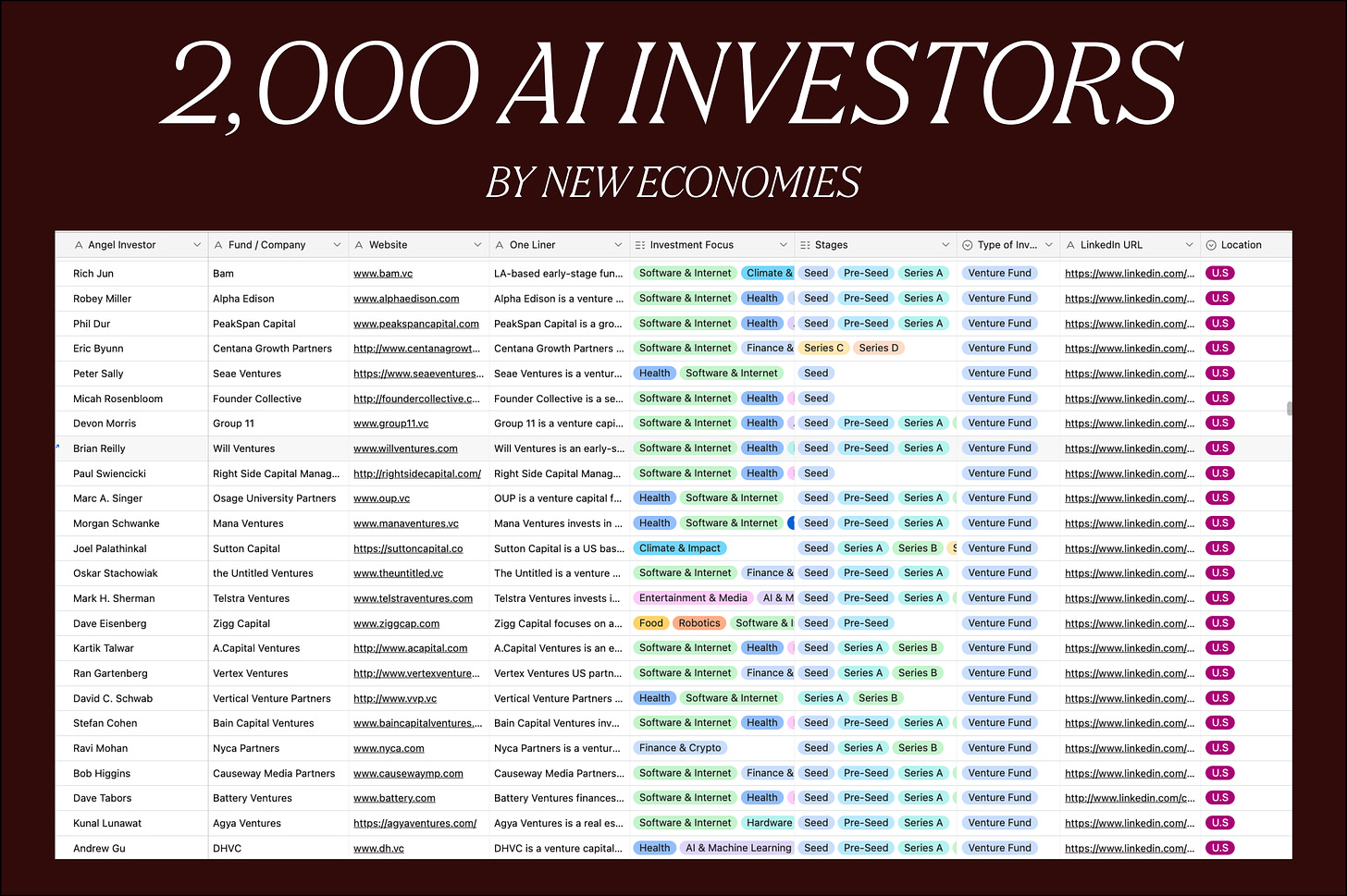Hey Readers 👋
Welcome to this week’s edition of New Economies, a newsletter exploring the latest technology trends transforming our world. In this edition, we explore the emerging applications of AI tools for the legal industry.
AI is advancing rapidly, with thousands of startups now contributing to the ecosystem—building tools and platforms designed to work alongside us. These include co-pilots, which assist and collaborate with users; generative AI tools, capable of creating content, images, and videos based on prompts; and AI agents, which can nearly fully automate complex tasks for us.
All of this has happened in just a few years.
In recent months, we have covered how AI is impacting the startup ecosystem by mapping out the latest generative AI tools, publishing one of the first AI agents market maps, and more recently, analyzing AI unicorns and their characteristics. Additionally, we recently discovered hundreds of workplace AI tools and those supporting sales-related teams—providing examples of how AI can be adopted within the workplace.
This week, we focus on the legal industry, a historically traditional sector now undergoing rapid transformation. In just the past two years, hundreds of AI tools have emerged within the legal sector, attracting significant investment as they aim to transform how legal services will operate in the years ahead. This represents a massive opportunity, with approximately half a million law firms in the U.S. alone and over fifteen million lawyers worldwide.
AI has already made inroads into the legal profession. For nearly a decade, some lawyers have relied on it to analyze data and search through documents. Today, AI extends its utility by streamlining routine tasks like drafting legal documents, reviewing contracts, legal research and supporting law firms with their operations.
While AI can free up lawyers to focus on strategic planning and case analysis, it also brings challenges such as bias, discrimination, and privacy issues. These risks have fueled skepticism among some legal professionals, leaving them cautious about the technology’s rapid evolution. Despite these concerns, these new types of platforms are undeniably reshaping the legal landscape—and there are hundreds of startups emerging, some of which we highlight in this week’s edition.
How will AI impact law firms?
According to recent research by Bloomberg, most lawyers who were surveyed recognize the potential impact of AI tools across various tasks—from drafting contracts and summarizing documents to reviewing files and conducting legal research, among other applications. In addition to this, research points out that the industry’s use of AI has doubled to 47% in the past year.
The LegalTech Startup Landscape
To help navigate this evolving landscape, we’ve created a market map that highlights notable players and early-stage startups who are building to support legal firms and teams.
We’ve categorized the AI startups and platforms into the following categories.
E-Discovery
Streamlines the process of collecting, reviewing, and analyzing electronic data for legal cases.
Document Drafting
Generates legal documents quickly and accurately, minimizing manual input and errors.
Automations
Automates repetitive legal tasks and workflows, freeing up time for higher-value activities.
Contract Management
Centralizes contract storage, tracking, and compliance monitoring throughout their lifecycle.
Contract Review & Negotiation
Speeds up reviewing and negotiating contracts.
Patents
Assists with drafting, filing, and managing patent applications and intellectual property portfolios.
Research
Provides fast access to legal research and case law, with tools for better insights and analysis.
Law Firm Operations
Optimizes internal processes such as billing, time tracking, and case management to boost efficiency.
Vertical Law
Delivers tailored solutions for specialized legal industries (e.g., healthcare, fintech, or real estate).
Disclaimer
These startups have been categorized based on how they describe themselves on their marketing website. Some of the featured startups may fall into multiple categories.
AI in Action: Practical use cases for legal teams
To help you navigate how these tools can impact the legal industry, we have provided a few examples on how these tools can be adopted and how powerful some of them can be now and in the near future.
Document Drafting
Are the days soon to be gone when you need to hire expensive lawyers to write and draft documents? There are a number of new platforms emerging such as DocDraft, Clearbrief and Henchman who will automate drafting contracts for you.
Contract Reviews
Contract reviews often take hours. Legal firms use platforms such as Robin AI to help teams fly through contracts.
Patents
Streamlining end-to-end patent filing processes for patent lawyers with platforms such as Checkable, Patlytics, and RightHub who act as your automated patent legal expert—all through AI.
The Ecosystem
How big is the opportunity?
Often, the most mundane tools can present the greatest opportunities and the legal tech industry is beginning to witness this.
Legal tech has seen a huge bump this year—mainly thanks to AI. According to Crunchbase, legal tech startups have already raised $1.9 billion this year. Last year, VC-backed startups building across the ecosystem raised less than $1 billion. In the last few years, the category has minted at least seven unicorns including: EvenUp, Clio, and Harvey.
Who’s investing in AI tools?
With hundreds of startups raising, it can be time-consuming finding which investors are investing in AI. We’ve done all the work for you. Subscribe and upgrade to become a premium subscriber where you will be able to access our data room made up of 2,000+ investors who are actively investing.
Thank you for being a continued supporter and reader. If you enjoyed this week’s edition, please give it a ❤️ at the top of this email.
Upgrade to become a premium subscriber and receive:
150+ legal AI tools that have raised venture funding throughout 2024.
90+ legal AI startups featured in this week’s newsletter edition.
2,000+ investors who are actively investing in AI.
$1M in discounts at the likes of HubSpot, Notion and other platforms.
Complete access to our data room.
Full access to all New Economies newsletter editions.
The Operators Handbook: All the resources to launch your entrepreneurial career.








